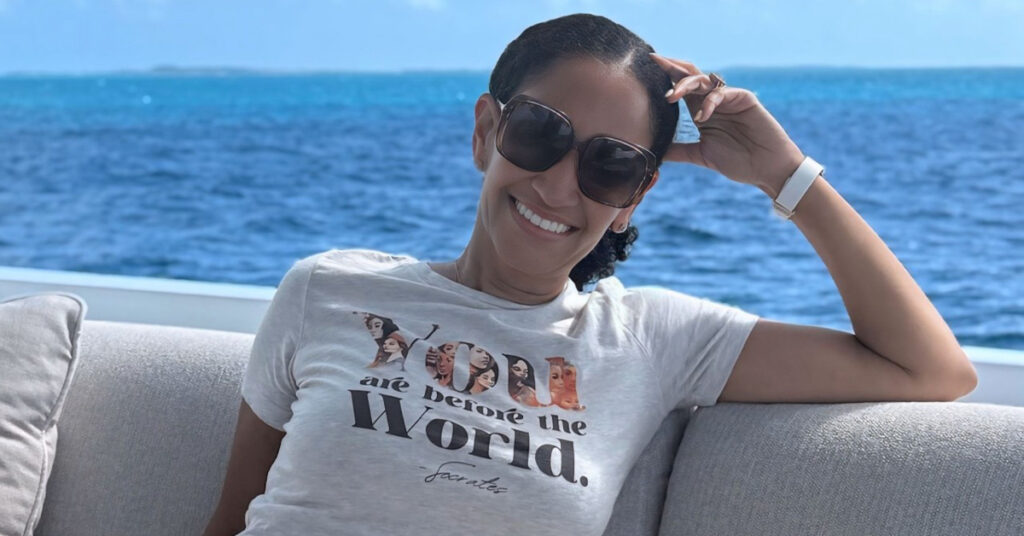A couple years ago, my family and I stood in a very long customs line in Barcelona, waiting to begin an adventure that would take us, by cruise ship, to Mallorca, Florence, Rome, and Marseille. We’d been standing for an hour, and as I worked to temper my impatience, I noticed a woman ahead of us noticing me. When we met up in the snaking line, she spoke.
“Are you Tara Jaye Frank?” she asked excitedly.
“Yes,” I answered, smiling. Our oldest son, who was listening, shot me a confused glance, then looked around as if to confirm our whereabouts.
“I love The Waymakers book,” she gushed. “My copy is all marked up. I’ve given it to so many people, and I use it in my work every day.”
“That’s great to hear,” I replied as I extended my arms to hug her. “Thank you for sharing. It means a lot.”
“Thank you for writing it,” she added.
Our children snickered, and the youngest asked if I were famous. I laughed a little too hard, partly because he asked so earnestly, but also because when a stranger is excited to see me in public, I feel both grateful and disconnected from my body. The laugh was less from amusement and more of an audible exhale through my discomfort.
I’ve never been one of the cool kids.
In elementary school, I had five friends. Only one of these friendships felt unconditional. If I said or did something “uncool,” Keri would shrug her shoulders and lead me toward the next great adventure. We were both a little odd, I suppose. Lots of fantasy film watching on repeat. Searching for bugs. Playing with dirt. Burning leaves with magnifying glasses. Sucking nectar from honeysuckles in the woods behind our neighborhood. (Gross?) Walking through creeks in our shorts daring the leeches to find us. (Dangerous!) Pretending her golden retriever was royalty, and we were her royal subjects. (Valid.)
To other people, I seemed invisible, or worse—too visible. For a time, I was the only Black girl in our school. I didn’t want to stick out in this way, so I did everything I could to fade into the background where I could watch but not be watched. I didn’t speak much. I didn’t volunteer. I kept to myself. But I listened intently—to everything and everyone, all the time.
Some of my awkward schoolgirl experiences were textbook. I was picked last for kickball (I do not blame the choosers. My hand eye coordination was, and is, terrible.) Boys did not like me. I was not a regular receiver of good secrets or fun surprises. I existed on the perimeter, where it was easier to assess the many childhood dangers afoot, like spontaneous ridicule or peer pressure or drama. It worked, for the most part.
Fast forward, and not much has changed. I may be successful by traditional measures, but I am not one of the cool kids. There are vibrant circles of women who appear to be traveling alongside each other through this phase of life. They’re in the same photos with the same bright smiles, at the same posh gatherings in gorgeous, tailored clothes, and having the same memorable experiences in big cities and tropical locales. They are stylish and confident and busy and free. They show up for each other and with each other. It’s beautiful. Sometimes, I wish I were there.
A few weeks ago, a Spelman classmate called to ask how I might support an idea she’s contemplating, which is about bringing Black women together to commune and care and collaborate. My first instinct, reflecting on the posh gatherings, was that these spaces already exist. I rattled off a few examples.
She hesitated. Then said, “Those are for certain women.”
She explained, “There are a lot of us who aren’t at that level. Who aren’t visible. Who don’t have a place to connect that doesn’t rely on knowing someone who knows someone.”
Ouch. I sat back in my chair and tried to think of spaces like the one she was considering, and beyond a couple business conferences, I came up short. I deeply understood what she was longing for, which is a place that centers connection instead of achievement. A place free from the tension that exists between striving and arriving, showing up and showing out, being yourself and being somebody—a certain woman.
The truth is, I’ve been fighting for this space inside myself. This is what it means for me to be before the world. It means doing good works without needing the attention they sometimes garner. It means refraining from self-sacrifice as a way to find acceptance or win respect. It means spending my time and energy where and when I want to, instead of where I think people expect me to be. It means being the woman I am at every turn and in every circumstance, with others who desire the same freedom from worldly expectation.
I have achieved a lot in my life, and I’m not done achieving. But it’s not my identity. I’m a creative, curious pattern seeker who, in my own way, works incessantly to solve important people problems. I’m also a wife and mother and grandmother and daughter and friend and leader. I love the ocean and chocolate with the same intense passion. I like my small circle and the comfort of my home. I love books and words and my three dogs.
And you know what? It is enough.
Tara Jaye Frank
